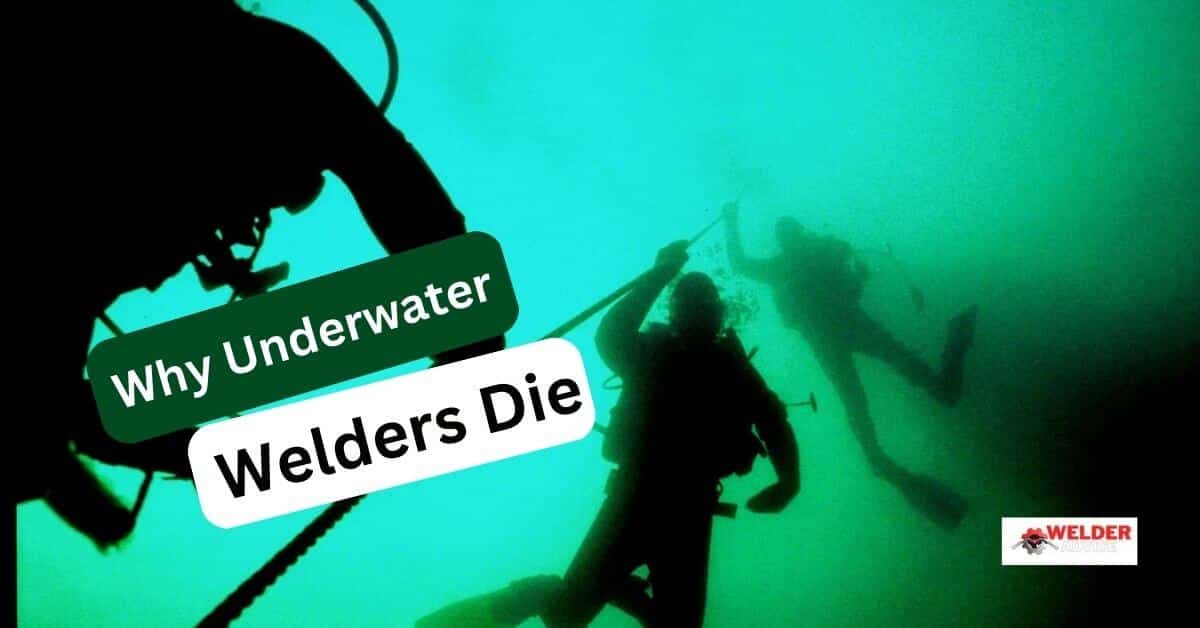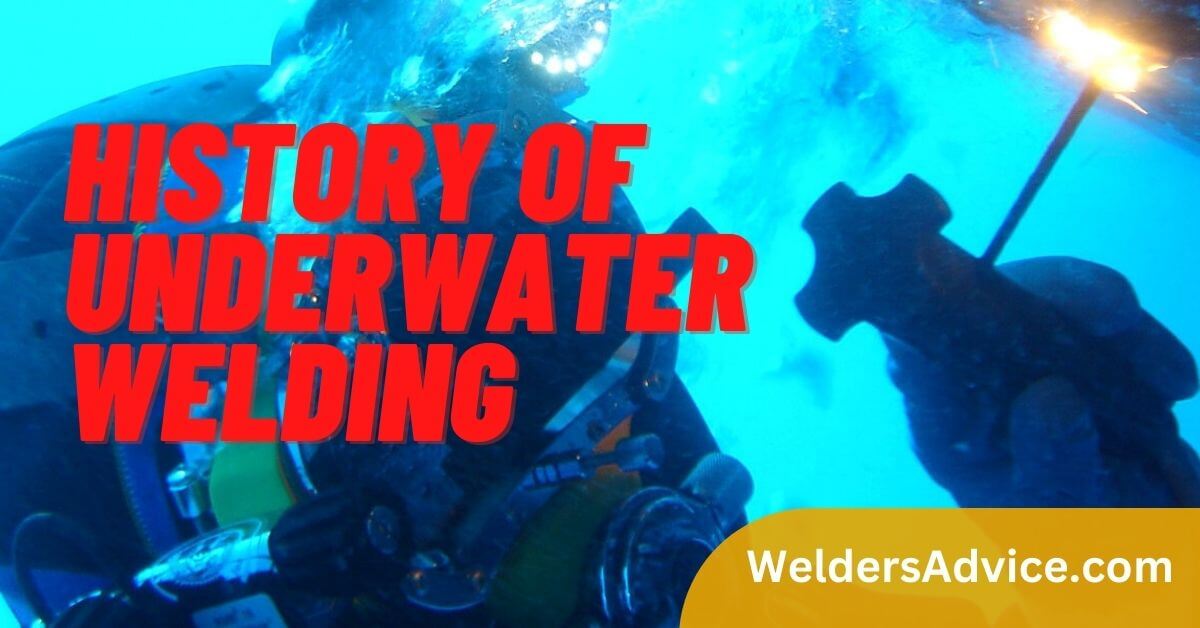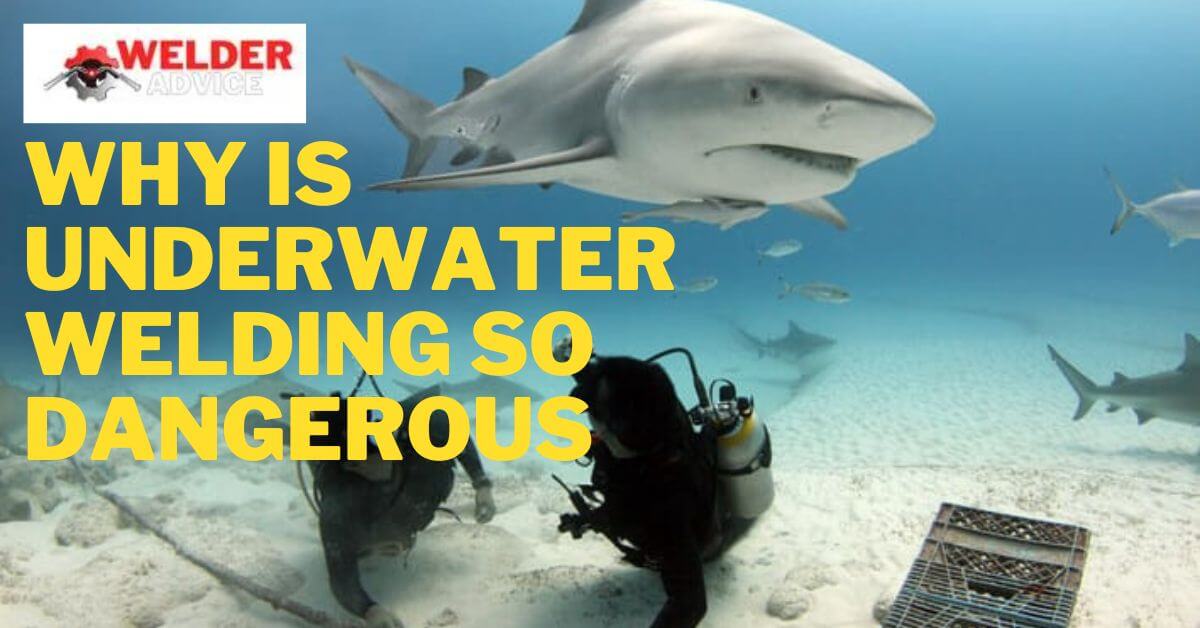Underwater welding is a highly specialized and dangerous profession that requires a high level of skill and expertise. Although, It is also a profession that comes with a relatively short life expectancy due to the harsh and demanding conditions that underwater welders are exposed to daily. In this article, we will look closely at why underwater welders Die and explore some factors that can impact this vital statistic.
- Why Do Underwater Welders Die
- Drowning
- Injury and illness
- Hypothermia
- Heavy machinery and equipment
- High levels of noise and vibration
- Substance abuse, depression, and suicide
- Decompression sickness
- Electric shock and electrocution
- Accidents
- Long-term health effects
- High risk of accidents and injuries
- Fatigue and exhaustion
- Exposure to noise and vibration
- Prolonged exposure to extreme
- Poor visibility and limited mobility
- The Life Expectancy of Underwater Welders
- Future of Underwater Welding
- Avoid Underwater Welding Accidents
- Proper training
- Safety equipment
- Safe diving practices
- Properly maintained equipment
- Communication
- Emergency procedures
- Risk assessment
- Regular health check-ups
- Proper welding techniques
- Follow regulations and guidelines.
- Final Thoughts on Why Do Underwater Welders Die
Why Do Underwater Welders Die
Underwater welding is a highly specialized and dangerous profession that comes with many inherent risks and hazards. Some of the specific reasons why do underwater welders die to include the following:
Drowning
One of the most significant risks that underwater welders face is the risk of drowning. Also, this can occur due to various factors, including equipment failure, human error, and sudden weather or water conditions changes. Drowning is a real danger for underwater welders. Training and equipment are a must to handle this risk properly.
Injury and illness
Another major risk underwater welders face is the risk of injury or illness due to exposure to hazardous materials and environments. They must work in environments contaminated with toxic chemicals, such as heavy metals and other pollutants. Which can cause serious health problems over time.
Hypothermia
Underwater welders often work in extreme temperatures and environments, which can lead to hypothermia, hyperthermia, and other forms of heat stress. This can cause a variety of health problems and can even be fatal in some cases.
Heavy machinery and equipment
Underwater welders often use heavy machinery and equipment, such as welding torches and cutting tools, which can be dangerous if not used properly. Injuries from these tools can range from minor cuts and burns to more serious injuries such as amputation and even death.
High levels of noise and vibration
Underwater welding can be very loud and noisy, and welders are often exposed to high noise and vibration levels. This can lead to hearing loss and other health problems over time.
Substance abuse, depression, and suicide
The demanding and stressful nature of the work and lifestyle associated with underwater welding can increase rates of substance abuse, depression, and suicide among welders.
Decompression sickness
Underwater welders are also divers and are exposed to the risks associated with diving, such as decompression sickness, which can be fatal if not treated properly.
Electric shock and electrocution
Welders work with electrical equipment, which can lead to fatal electrical shocks if not properly maintained or used.
Accidents
Welders rely on specialized equipment to do their job. If you don’t equip it properly, it can lead to accidents and injuries.
Long-term health effects
Long-term exposure to toxic materials and environments can cause various health problems, including cancer and other serious illnesses.
High risk of accidents and injuries
Welding underwater is inherently more dangerous than welding on land due to the limited visibility, mobility, and communication possible underwater.
Fatigue and exhaustion
Underwater welding can be mentally and physically demanding. Long working hours and high-stress levels can lead to fatigue and exhaustion, increasing the risk of accidents and injuries.
Exposure to noise and vibration
The noise and vibration generated by welding can cause permanent hearing loss over time.
Prolonged exposure to extreme
Welders work in underwater environments that can be extremely cold and pressurized, leading to various health problems over time.
Poor visibility and limited mobility
Underwater welding requires working in an environment with limited mobility in the underwater environment.
Also Read: Is Welding a Good Career for a Women?
The Life Expectancy of Underwater Welders
The life expectancy of underwater welders is significantly lower than that of the general population. This is due to the many hazards and risks that are inherent in this line of work, including the risk of drowning, injury or illness resulting from exposure to hazardous materials and environments, hypothermia, hyperthermia, injury from heavy machinery and equipment, and exposure to high levels of noise and vibration.
In addition to these risks, many underwater welders face an increased risk of death due to their work and lifestyle, such as the increased risk of substance abuse, depression, and suicide. Diving-related injuries and accidents caused by poor maintenance or malfunction of equipment are also a risk for underwater welders.
Long-term health effects caused by exposure to hazardous materials and environments, high risk of accidents and injuries in the underwater environment, fatigue and exhaustion from long working hours, high-stress levels, long-term exposure to noise and vibration that can cause hearing loss, and prolonged exposure to extreme temperatures, humidity and pressure are also factors that can decrease the life expectancy of underwater welders.
Despite these many risks and hazards, proper training, safety precautions, and a commitment to professionalism can minimize the risks and hazards associated with this profession and allow underwater welders to enjoy a long and fulfilling career.
You May Like: Underwater Welder Death Rate
Future of Underwater Welding
The future of underwater welding is expected to be shaped by several factors, including technological advances, changes in industry regulations and standards, and shifting economic and environmental conditions.
Advance in technology
One of the biggest drivers of change in underwater welding is likely to advance in technology. New and emerging technologies, such as robotics, automation, and virtual reality, are expected to play an increasingly important role in underwater welding, enabling welders to perform their tasks more efficiently, safely, and accurately.
Changing industry regulations and standards
Another important factor that is likely to shape the future of underwater welding is changing industry regulations and standards. Governments and industry organizations worldwide are increasingly focused on improving safety and environmental standards in underwater welding. This is likely to lead to changes in how welding is performed and regulated.
Economic factors
Economic factors are also expected to play a significant role in the future of underwater welding. As the demand for oil and gas, infrastructure, and renewable energy projects continues to grow, there will likely be an increased need for underwater welding services.
In summary, technological advances will likely shape the future of underwater welding. Changing industry regulations and standards and shifting economic and environmental conditions. As the field continues to evolve, welders must adapt and develop new skills to stay ahead of the curve.
Avoid Underwater Welding Accidents
It is important to follow safety procedures and guidelines to avoid accidents in underwater welding. Here are some key steps that can be taken to minimize the risk of accidents in underwater welding:
Proper training
Welders should receive proper training on the techniques and equipment used in underwater welding and the hazards and risks associated with the profession.
Safety equipment
Welders should always wear the appropriate safety equipment, including protective clothing, gloves, hard hat, goggles, and respirators.
Safe diving practices
Welders should always follow safe diving practices, including using dive tables and computers and adhering to dive profiles and no-decompression limits.
Properly maintained equipment
Ensure that you maintain equipment malfunctions or defects are quickly and properly addressed.
Communication
Welders should maintain clear and consistent communication with their dive partners and surface support team to ensure that everyone knows the dive’s status and any potential hazards.
Emergency procedures
Train welders in emergency procedures, including emergency ascent, decompression, and evacuation.
Risk assessment
Welders should conduct a risk assessment before each dive to identify and minimize potential hazards.
Regular health check-ups
Regularly check their health to ensure they are physically fit to dive and weld.
Proper welding techniques
Welders should use proper welding techniques, the appropriate welding consumables, and shielding gas to minimize the risk of fires and explosions.
Follow regulations and guidelines.
Welders should always follow the regulations and guidelines set by the industry, including OSHA and other safety organizations.
Final Thoughts on Why Do Underwater Welders Die
Now you might learn about Why Do Underwater Welders Die. The underwater welding field is also known to be highly hazardous and specialized, with many risks associated with it. These risks include drowning, hypothermia, and exposure to toxic gases. Deep water pressure can also cause physical injuries such as decompression sickness. Due to the hazardous nature of the work, those in the field need proper training, equipment, and safety protocols to minimize the risk of injury or death.






